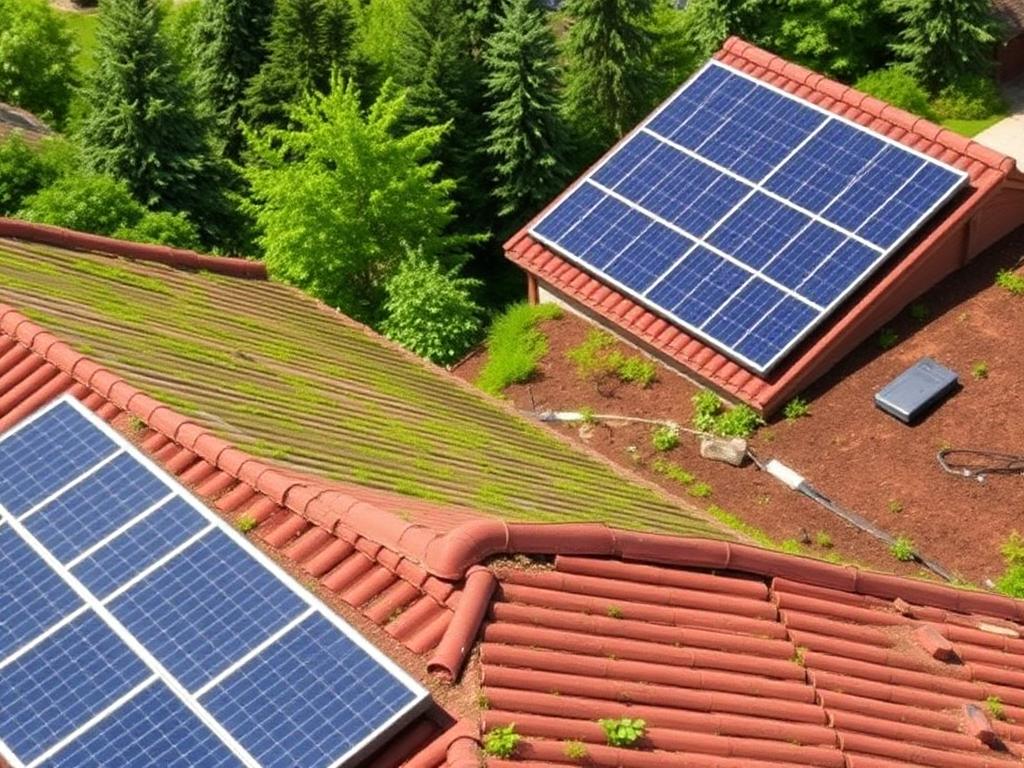How Rooftop Solar and Land Conservation Can Work Together to Benefit the Environment
Date: 31 December, 2024

In the face of the urgent challenge to cope with the prospect of global warming and environmental degradation, innovative changes are coming up to deal directly with this problem. One such initiative is to fit solar energy systems onto the roofs of homes and factories and at the same time take measures for land conservation. This method not only helps renew green energy but also looks after the health of vital eco-systems. It is a strategy that benefits both natural environment and residents alike.
And Total Solar is a good example. The company has brought in advanced off-grid photovoltaic systems that bring clear skies anywhere, and this technology has finally taken a significant place in the world market. The more knowledge about solar energy it can make available, the better off everyone is. Plus there is no doubt that households save money by using solar power for their lighting and heating.
Total Solar is committed to delivering well-thought-out, professionally planned and expertly installed solar solutions. Their approach covers everything from initial design to obtaining permits necessary for construction work, installation, final inspection and synchronization with utility companies supplying power to your community. In this way, with each project designed to cater for the particular needs of its community, there is a maximal return on your investment in solar energy.
Land Conservation: A Critical Component
In any event, while the use of rooftop solar generate power is sustainable and beneficial, land conservation is the key to the preservation of biodiversity. In recent years, with urban areas expanding and intensified agricultural practices, natural landscapes are often lost as arable land. The wildlife and ecosystem services (such as fresh air, clean water sources, carbon storage) which these areas provide are thus put at risk by our development activities. This not only threatens the animal life there but also diminishes the ecosystem services that these lands provide.
Rooftop solar in combination with land conservation has many benefits for the environment as a whole:
Reduced Land Use: Solar panels on a building roof make renewable energy without taking up any more earth. This technique maximizes the use of land while maintaining critical ecosystems.
Energy Independence Reinforced: Communities equipped with rooftop solar systems can produce their own electricity–not relying on power companies for it, which increases immediate costs and also future dangers like global warming. This kind of freedom is very important when we consider the ravages climate change has brought to some parts of China where all you need now in order to suffer from flooding or drought is rainfall due north of you on higher ground somewhere else downstream.
Biodiversity Maintenance: In doing so, not only does land conservation preserve landscapes for a wide variety of living things, but adding solar arrays to rooftops means that many more hitherto undeveloped areas are left undisturbed. Only by conserving intact habitats can biodiversity be maintained. Ecosystems need to be vigorous if they are going to come up against the challenges of climate change as well as other ecological threats.
Community Involvement: By combining rooftop solar and land conservation programs, communities will become more involved and aware. Local people can take part in solar projects, learn about the importance of preserving open space, and help build a better future for all. Involvement by residents is important to the success of any preservation scheme.
Economic Benefits: Investing in rooftop solar might create jobs for installers, maintenance workers and designers; conservation of land could mean that people in those areas wouldn’t have to work very hard but simply welcome tourists or produce crops more naturally by organic methods–such as tea from nearby plantations.











